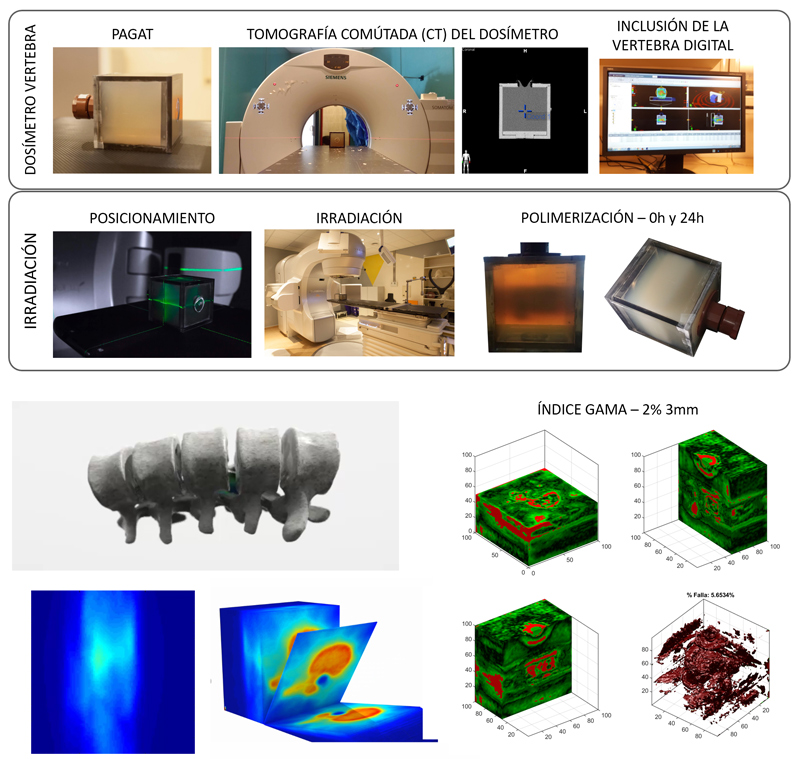Topic: The interaction of different materials with high-energy photons can be used to quantify the energy absorbed per unit mass of a material, known as dose. This measurement is crucial to ensure that radiotherapy treatments are effective and that damage to tissues is achieved with minimal effect on healthy tissues. There are different ways to quantify the absorbed dose when exposed to a beam of photons or high-energy particles, including deterministic calculation tools, stochastic simulation, point determination elements like ionization chambers, or systems designed to respond quantitatively to the absorbed dose. The latter have evolved in recent decades by incorporating inorganic solutions that oxidize upon radiation exposure, polymeric systems where polymerization is induced by irradiation beams, and the incorporation of metallic nanoparticles to allow simultaneous detection and dosimetry, known as theranostics.
In this context, the project proposes to study the design of materials that combine the use of polymeric systems, inorganic materials, and nanoparticles to obtain integral X-ray dosimetric systems capable of quantifying the 3D dose distribution. It aims to optimize currently used materials known as polymer gel dosimeters for radiotherapy clinical applications and design novel materials that combine nanoparticles of different metals such as gold, silver, and gadolinium for theranostic applications. The project involves material design, interaction of materials with radiation, material characterization techniques, design of anthropomorphic materials by 3D printing, design and synthesis of metallic and organometallic nanoparticles, irradiation with ionizing X-rays with kilovoltage and megavoltage energies, and thermal neutrons, collaboration with radiotherapy clinics for clinical applications, and the development of numerical simulations and programming tools for radiotherapy and radiodiagnosis applications.
Profile: Graduates in Physics, Chemistry, or Engineering interested in applying for the current call for doctoral fellowships from CONICET (no more than 5 subjects pending at the time of application, including thesis or final project). GPA of 8 or higher. Individuals with an interest in research, who are committed and proactive.
Contact: Send CV or contact Dr. Facundo Mattea (fmattea@fcq.unc.edu.ar; fmattea@gmail.com) and/or Dr. Mauro Valente (valente@famaf.unc.edu.ar).

